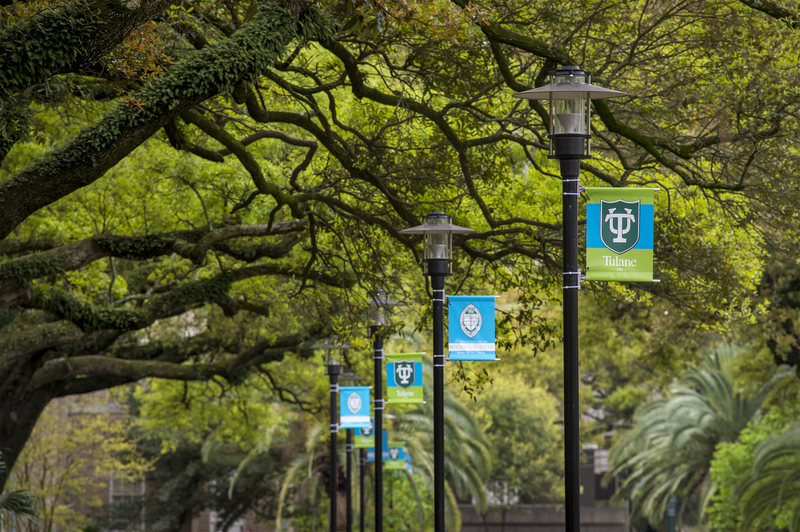
Highlights of Tulane's History
-
1834: The Medical College of Louisiana is founded in New Orleans by seven young doctors.
-
1847: The state legislature establishes the University of Louisiana.
-
1847: The Medical College of Louisiana becomes the Medical Department of the University of Louisiana.
-
1847: The University of Louisiana adds a law department, the 12th such department in the United States.
-
1851: An academic department for men opens. Its first students are enrolled — 12 freshmen and two sophomores.
-
1861: The university closes its doors because of the Civil War. Classes resume in 1865.
-
1882: Paul Tulane donates extensive real estate in New Orleans for the support of education. A Board of Administrators of the Tulane Educational Fund is appointed and holds its first meeting. The board decides to support and incorporate with the University of Louisiana rather than create a separate institution.
-
1884: The Louisiana Legislature passes a bill transferring the University of Louisiana at New Orleans to the control of the Administrators of the Tulane Educational Fund, thus creating the Tulane University of Louisiana, a private, nonsectarian university.
-
1885: The university establishes a graduate division, later to become the Graduate School.
-
1886: Newcomb College is established within Tulane University. Josephine Louise Newcomb gave the gifts to found the college in memory of her daughter, Harriott Sophie Newcomb.
-
1894: The university organizes the College of Technology, which later will become the School of Engineering.
-
1894: The university moves to its uptown campus on St. Charles Avenue, five miles by streetcar from downtown New Orleans.
-
1894: The Newcomb Pottery is established.
-
1907: The College of Technology organizes an architecture department, which will evolve into the School of Architecture.
-
1912: The School of Hygiene and Tropical Medicine is established. It later merges with the College of Medicine.
-
1914: The College of Commerce is established. It is the first business school in the South and the forerunner of the A. B. Freeman School of Business.
-
1925: The Graduate School is established.
-
1927: The School of Social Work is established — the first in the Deep South.
-
1942: University College is founded as Tulane's division of continuing education.
-
1950: The Department of Architecture separates from the School of Engineering and becomes the School of Architecture.
-
1967: The School of Public Health and Tropical Medicine is established.
-
1976: The Tulane Medical Center, a 300-bed teaching hospital and ambulatory clinic, opens.
-
1993: The name of the College of Arts and Sciences changes to Paul M. Tulane College and is referred to as Tulane College.
-
2005: The university cancels the fall semester because of Hurricane Katrina. Tulane University announces a bold renewal plan in December.
- Strategic initiatives: Newcomb and Tulane colleges are combined to form Newcomb-Tulane College for all undergraduates.
- The H. Sophie Newcomb Memorial College Institute is established.
- University College is renamed the School of Professional Advancement.
- The Faculty of the Liberal Arts & Sciences and the School of Engineering are reorganized into two schools: the School of Liberal Arts and the School of Science & Engineering.
- A public service graduation requirement for all students is initiated.
- The Partnership for the Transformation of Urban Communities is established.
-
2006: Classes resume in the spring with 93 percent of all students returning to Tulane University after Hurricane Katrina.
-
2007: The university's incoming freshman class of 1,400 students is almost 60 percent larger than in 2006, marking the largest one-year increase in first-year students in the history of the university.
-
2010: "Tulane Empowers" begins, a campaign to build resources that will help people build a better world.
-
2014: Mike Fitts is named the 15th President of Tulane University.
-
2017: The School of Continuing Studies relaunches as the School of Professional Advancement (SoPA) with a renewed focus on working adults, career advancement, and applied and innovative programs that are relevant to the workplace.
-
2017: "Only the Audacious: The campaign for an ever bolder Tulane" begins. This is the university's most ambitious fundraising campaign to date — with a goal of raising $1.3 billion.
